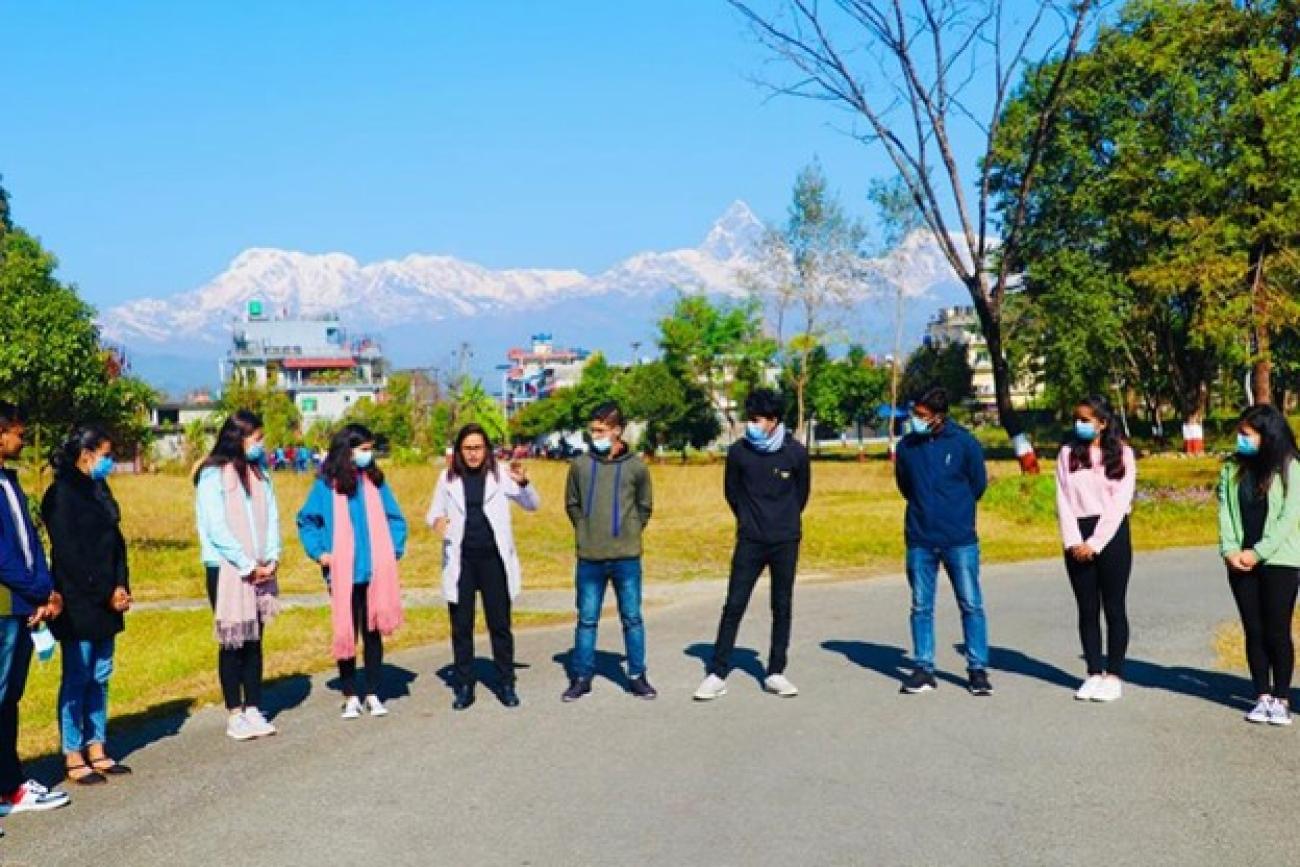As the youth focal point of UNDP Nepal, Binita Karki, UN Volunteer Youth Programme Officer, works closely with youth-led organizations and young people from across Nepal. Her approach of working with and for youth, and on topics like gender equality ensures sustainable development reaches the farthest left behind.
Youth-led organizations consider youth issues a crosscutting theme in sustainable development. One example is UNDP Nepal’s My Way, Green Way campaign. Campaign organizers distribute bicycles to young girls in various parts of Nepal to provide easy and independent transport to and from school. A mobile application has also been launched that incentivizes bicycle use per kilometer.
Another example at UNDP Nepal is a nationwide digital campaign, "Sachetana: Our Health, Our Responsibility". Together with a youth-led organization Maina Devi Foundation, people were taught about health care waste management. The campaign mobilized 300 volunteers from all over the country. The project included 55 percent female volunteers and 30 percent volunteers from marginalized communities, including 20 LGBTIQA+ individuals, 15 persons with disability, and 53 individuals belonging to ethnic minorities. UNDP Nepal's Gender Equality and Social Inclusion (GESI) Advisor delivered a session on gender and inclusion to the selected volunteers to further encourage them to respect diversity.
Gender Equality and Social Inclusion (GESI) is not an option for us, but a must. We reach out to local civil society organizations and partners to ensure a remarkable number of participations in terms of gender, geography, marginalization, and disability in our interventions." -- Binita Karki, UN Volunteer Youth Programme Officer with UNDP Nepal
Born in rural Nepal, Binita witnessed gender-based discrimination since her childhood. Girls were expected to cook and complete household chores while boys had privileges to play sports and go to private schools.
For Binita, struggling for education was her first fight for gender equality. Despite obstacles, she did not give up and got her Master's degree in Crisis Management. She realized the importance of disaster management after the Nepal earthquake in 2015.
I feel fortunate to be a UN Volunteer working for UNDP in Nepal – where climate action is one of the major components. From witnessing gender-based discrimination since childhood and fighting for it to presently working for climate mitigation with inclusive participation of young men and women, along with LGBTIQA+ community and people with disability – I feel like I have come a long way and still have a long way to go." -- Binita Karki
Benita believes that sustainability comes with equality and equity. Ensuring quality education of every child despite their gender – allowing children to pursue their dreams, and letting them be themselves are some of the essential steps that must start from home.
Understanding the diverse needs and disparities of men, women and LGBTIQA communities and planning the allocation of resources accordingly is another step for achieving gender equality for sustainable development.
There were so many challenges I faced during this journey. I had to leave my home after high school for my future career. I started living alone from the age of 17 which is not accepted as normal in Nepali society. Times have changed now. The ones who used to question aspirations now wish their children to be like me – humble, independent, hardworking, and serving an international intergovernmental organization like UNDP Nepal.” -- Binita Karki


